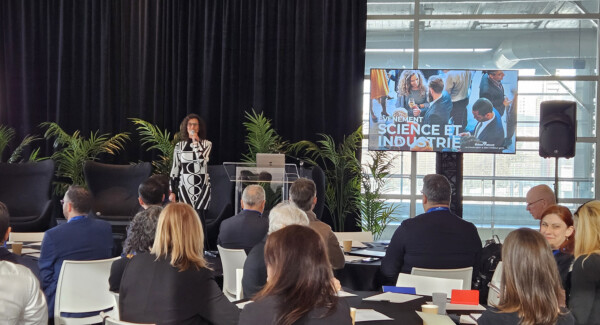Excessive drinking can bring on general feelings of both physical and mental discomfort. In addition to headaches and nausea, people may also experience body sweats, heart palpitations and even anxiousness. This state, which is similar to anxiety, blends the characteristics of anxiety with the symptoms of a hangover (veisalgie, lendemain de veille or gueule de bois in French), it’s known as hangxiety.
How does alcohol cause hangxiety?
Psychological and biological factors
Neurotransmitters are molecules that send messages from one region of the brain to another. A neurotransmitter can play an excitatory role – it increases the activity in a region of the brain – or an inhibitory role – it decreases its activity.
Drinking alcohol leads to a change in the activity of our two main neurotransmitters: glutamate (the most common excitatory neurotransmitter in the brain) and GABA (gamma-aminobutyric acid – the main inhibitory neurotransmitter).
On the one hand, alcohol stimulates GABA activity, which increases the inhibitory effect of GABA on several regions of the brain.
On the other hand, alcohol also reduces the activity of glutamate, which diminishes the excitatory effect of glutamate on several regions of the brain. This is why the term “depressant” is attributed to alcohol— it has a calming effect on the brain, because it reduces the activity of several regions of the brain, including the amygdala which functions as an alert system and plays a direct role in anxiety. A reduction in the activity of the amygdala therefore leads to a decrease in anxiety in the person who drinks.
But why do we feel anxious the day after?
The human body is constantly seeking to maintain a certain internal balance, or homeostatic state. It is always adjusting its production of molecules and hormones to maintain this desired balance.
When alcohol enters the system, it stimulates GABA activity and reduces glutamate, recognizing what is happening the body compensates by reducing its production of GABA and increasing that of glutamate, with the goal of counterbalancing the effects of alcohol.
The problem arises the next day, when all the alcohol has now been eliminated, but the body hasn’t caught up and resumed its regular production of GABA and glutamate. People often experience a pendulum effect as the amygdala, which was inhibited under the influence of alcohol, tries to rebalance itself once its effect wears off. This is what can cause some people to feel anxious.
Who is more likely to suffer from hangxiety?
People already experiencing anxiety – generalized or even social – are particularly at risk of experiencing hangxiety. Because their baseline levels of anxiety are higher, drinking alcohol can have a particularly soothing effect. Therefore, when alcohol is cleared from the system, the rebound effect the next day can be even more painful.
People who tend to have panic attacks may also be susceptible to hangxiety. When a person experiences the physiological symptoms of anxiety from the hangover, it can increase the feelings of anxiety and accelerate anxiety-provoking intrusive thoughts.
How do you manage hangxiety?
The day after an evening of drinking is a great time to plan activities that are good for you that can help to reduce discomfort. Activities that generate endorphins – such as physical exercise, eating, or receiving a massage – can make it easier to recover from hangxiety. Common anxiety management strategies may also be helpful.
If you have ever experienced hangxiety, one way of dealing with it would be to try to reduce the amount of alcohol you consume and see if the symptoms lessen.
Either way, it’s good to remember that excessive drinking, even on an occasional basis, can cause significant damage to your digestive system, your brain, your heart, your liver, your stomach and other vital organs. Alcohol abuse can also shorten your life expectancy.





